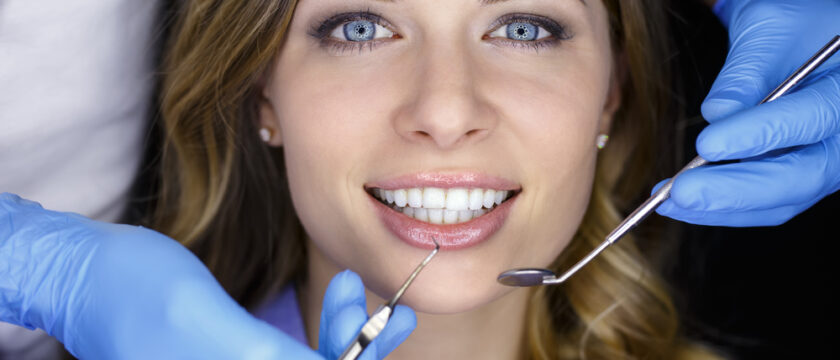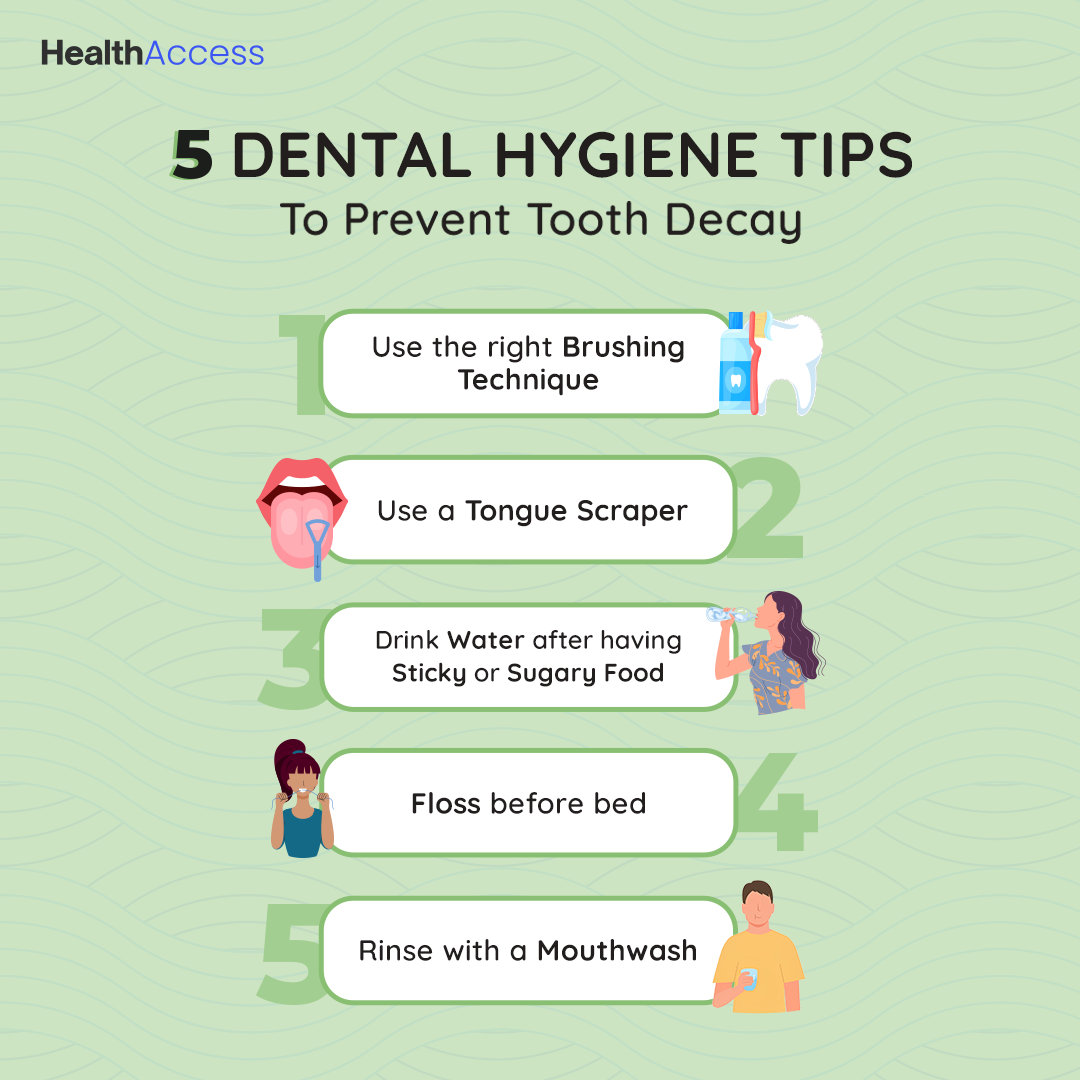7 Dental Hygiene Tips That Can Help Prevent Tooth Decay
By Catherine M, Staff Editor
Last Updated on August 22nd, 2023 / Published on October 11, 2018

7 dental hygiene tips that can help prevent tooth decay
Dental health is often taken for granted by most of us until a big problem like a cavity or tooth sensitivity arises. Needless to say, to prevent such unpleasant experiences, taking good care of your teeth on a daily basis is essential. The more particular you are about your dental hygiene, the lesser is the risk of suffering from a gum disease or a tooth decay. Apart from brushing your teeth twice a day, here are a few other measures you should take to keep any oral problems at bay.
Use the right brushing technique
Religiously brushing your teeth twice a day won’t be enough if you don’t do it in the right way. You should hold your brush at a slight angle and move it back and forth across your teeth. Remember to also lightly brush the roof of your mouth and gums. However, don’t be harsh on your teeth while brushing as it can erode the enamel layer, which in turn causes sensitivity. To protect your teeth from abrasive actions, use a soft-bristled toothbrush. Likewise, use a toothpaste that is rich in fluoride as it makes the teeth stronger.

Use a tongue scraper
Even after thoroughly cleaning your teeth, you could face the wrath of bad breath. This occurs because the residual food particles and bacteria are still hovering over the tongue. Buy a toothbrush with a scraper behind its head so that you don’t forget scraping your tongue. Cleaning your tongue with a scraper will not only freshen up your breath but will also prevent further bacteria accumulation.
Drinking water after having some sticky or sugary foods
Through the entire day, it is not possible for you to constantly brush or floss your teeth. Therefore, routinely keep sipping water after meals, especially, if you have something highly acidic, sticky, or sugary. If such substances coat your teeth for a long time, they can weaken the enamel and gums, triggering problems like tooth decay, sensitivity, or gum disease.
Floss before bed
Like you brush your teeth before bed, make it a habit to also floss your teeth. Flossing ensures that no food particles remain lodged in the difficult areas of the teeth, thereby preventing the chances of decay or cavities while you sleep. Moreover, flossing on a daily basis protects your teeth from tartar build-up that is the main culprit of bad breath and gum disease.
Rinse with a mouthwash
Not only does a mouthwash gets rid of bad breath but also strengthens the teeth and helps treat some oral disorders. Regularly using a mouthwash after meals can loosen the plaque and nurture the gums from serious dental problems like gingivitis. Many of the over-the-counter mouthwashes can be cosmetic in the results they deliver, i.e., they can only mask the bad breath and not contribute much toward sustaining comprehensive dental hygiene. Therefore, make sure that you talk to a dentist for reliable mouthwash recommendations.
Take a hard look at your eating habits
Consistently having highly processed foods, refined sugars, alcohol, and carbonated drinks can strip off the protective layer of enamel, and lead to serious dental issues like decay and sensitivity. Moreover, such foods can curb the saliva production, which can make the mouth dry and present an opportunity for harmful bacteria to multiply. Therefore, ensure that you cut down on such foods and switch to healthier options like apples, unflavored yogurt, cheese, celery, carrots, and leafy green vegetables.
Get routine dental check-ups
To ensure that your dental hygiene isn’t lacking, visit a dentist for preventive checkups and professional cleaning at least twice a year. Timely consultation with a dentist can help detect any problem at an early stage. In this way, any dental concern can be nipped in the bud before it turns into something major and irreversible.


